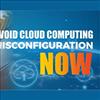Data Privacy-Protection Tools to Keep Your PC Safe

Blog Post
Data privacy-protection tools have become increasingly important in today's world due to the growing number of cyber threats and the amount of personal data that is shared and stored online.
In 2020, there were over 1001 data breaches reported in the US alone, compromising over 155 million records. This highlights the need for effective data privacy-protection tools to keep personal and sensitive data safe.
One of the main reasons for the importance of data privacy-protection tools is the rise in remote work and online activities due to the COVID-19 pandemic.
A report by McAfee found that there was a 630% increase in cloud services and a 91% increase in remote desktop protocol (RDP) usage in 2020, making it easier for cybercriminals to access personal and sensitive data.
The use of data privacy-protection tools such as VPNs and encryption tools can help prevent unauthorized access and keep data safe.
The financial impact of data breaches can also be significant. The average cost of a data breach in 2020 was $3.86 million, according to a study by the Ponemon Institute.
This includes the cost of data recovery, legal fees, and reputational damage. The use of data privacy-protection tools such as antivirus software and password managers can help prevent data breaches and reduce the financial impact.
In addition, data privacy laws and regulations are becoming more stringent around the world. The General Data Protection Regulation (GDPR) in Europe and the California Consumer Privacy Act (CCPA) in the US are examples of laws that require organizations to protect personal data and inform individuals of any data breaches. Failure to comply with these regulations can result in significant fines and legal action.
Many new privacy restrictions are being established to safeguard us as technology advances. Consequently, internet-connected smart gadgets are becoming more ubiquitous.
In this post, we'll show you how to employ processes and technologies to protect the privacy of your users' personal information.
The importance of data privacy-protection tools to keep personal and sensitive data safe cannot be overstated. With the growing number of cyber threats and the increasing amount of personal data shared and stored online, it is crucial to use effective data privacy-protection tools such as VPNs, antivirus software, password managers, and encryption tools to prevent unauthorized access and data breaches.
Compliance with data privacy laws and regulations is also essential to avoid legal consequences and financial impact.
In today's digital age, it's essential to keep your personal data safe from cyber threats. Data privacy-protection tools are essential to keep your PC safe from cyber threats and protect your personal information from being compromised.
With the increasing number of data breaches and cyber-attacks, it is important to take necessary steps to ensure your online privacy and security.
Data protection refers to a collection of techniques and procedures for ensuring the privacy, availability, and integrity of your information. Any organization that gathers, processes, or keeps sensitive data must have a data protection plan.
A good plan may aid in the prevention of data loss, theft, or corruption, as well as the mitigation of harm caused by a breach or disaster. So, if you're worried about how to keep your data safe, here's a quick primer to some options.
Data Privacy- Protection Tools to Keep Your PC Safe
-
Firewall
Because it divides one network from another, a firewall is one of the finest network defenses. To prevent unwanted traffic from entering the network, firewalls are used. Furthermore, you may only open ports, giving hackers less freedom to move to get access to or steal your data.
The firewall may entirely reject some or all traffic, or it may perform verification on some or all traffic, depending on the organization's firewall policy. Firewalls can be freestanding or integrated into other infrastructure devices like routers and servers. Firewall solutions are available in both hardware and software formats.
-
Backup & Recovery
Backup and recovery refer to the process of backing up data in the event of a loss and establishing systems that enable data recovery in the event of a loss. A backup and recovery solution helps businesses protect themselves if data is lost or corrupted.
Data from a previous time can only be restored if it has been backed up. All key business assets should be replicated regularly to ensure redundancy so that you can swiftly recover your data in the event of a server failure, inadvertent loss, or malicious harm from ransomware or other assaults.
-
Antivirus
Antivirus is one of the most extensively used security technologies in both personal and business environments. Although there are several antivirus software companies on the market, they all utilize the same approaches to identify dangerous code, mainly signatures and heuristics. Antivirus software can help you detect and remove trojans, rootkits, and viruses that can steal, change or harm your personal information.
-
Intrusion Detection & Prevention Systems
Intrusion detection systems, often known as IDS and intrusion prevention systems, or IPS, examine network traffic in detail and log possibly hostile behavior. An IDS may be set up to examine system event logs, monitor suspected network activity, and send out warnings when sessions appear to breach security parameters.
An IPS can not only identify harmful sessions, but it can also terminate them, albeit this is generally confined to particularly crude and apparent assaults like DDoS.
Between alert and action, security administrators usually perform an analysis to determine whether the alert represents danger and whether the threat is relevant to them.
These solutions need excellent calibration and research before making a session drop decision on an incoming alert, but they can help with data protection by preventing a hacker from gaining into your file servers using vulnerabilities and malware.
-
Security Information & Event Management
SIEM systems, or security information and event management, allow real-time analysis of security logs generated by network devices, servers, and software applications. SIEM solutions can not only collect and correlate events, but they can also do event deduplication, which involves deleting numerous reports from the same instance and then acting on alert and trigger criteria.
It also frequently includes an analytics toolbox to assist you to identify exactly the events you need right now, such as data security events. For data security investigations, SIEM systems are essential.
-
Data Loss Prevention
DLP systems, also known as data loss prevention systems, keep an eye on workstations, servers, and networks to ensure that sensitive data isn't destroyed, relocated, or duplicated. DLP is a combination of tactics and technologies that you may use to ensure that your data is properly protected.
Several technologies to defend against and recover from data loss are frequently included in data loss prevention systems. They also keep track of who is accessing and transferring data to detect unlawful activity.
-
Access Control
Users should not be permitted to copy or save sensitive data locally in most instances. Furthermore, critical information should never be saved on a portable machine. All systems should need some sort of login, and criteria should be in place to lock the system down if it is used inappropriately. Only authorized people should have access to sensitive files.
The idea of least privilege should be strictly followed when granting user permissions. An access control list indicates who has what level of access to what resource. Whitelists or blacklists can be used to create the lists.
A whitelist contains objects that are permitted, whereas a blacklist contains those that are forbidden.
Remember that access controls should be applied in any application with role-based access control, such as a set of permissions in a writing program that allows users to read, modify, or remove articles.
-
Cloud Security Solutions
Individuals and businesses are increasingly collecting and storing data. Directly connected storage, network area storage, storage area networks, and now cloud storage have all resulted from this. Cloud storage allows you to store ever-increasing amounts of data while delegating scaling concerns to your provider rather than local administrators.
Despite these advantages, cloud storage might be problematic in terms of security. You must ensure that the cloud provider can appropriately secure your data, as well as redundancy, disaster recovery, and other features. Make sure the data is encrypted, backed up, and that you have as much control as possible.
-
End To End Data Encryption
When you have very private files that you don't want to share, data encryption is critical. Passwords, credit card numbers, and other sensitive information can be stolen across unencrypted protocols due to network sniffing and other hacker attempts aimed at obtaining information.
This loss of privacy can be addressed by encrypted communication methods. Because it is difficult to monitor, attackers frequently utilize the encrypted web access given for customer security. As a result, when at rest or in transit over the network, all essential data should be encrypted.
Also Read: Why Cloud Web Security Is More Important Than Ever in a Post-Pandemic World
Here are some key data privacy-protection tools you can use to keep your PC safe:
Some key data privacy-protection tools
1. Virtual Private Network (VPN):
A Virtual Private Network (VPN) is a tool that creates a secure and encrypted connection between your computer and the internet. It hides your IP address and encrypts your internet traffic, making it difficult for anyone to track your online activities. According to a survey conducted by VPNMentor in 2021, 26% of global internet users use a VPN to protect their online privacy.
2. Antivirus Software:
Antivirus software is designed to detect and remove malware and viruses from your computer. In 2020, there were 139 million new malware samples discovered, according to a report by AV-TEST. This highlights the importance of having antivirus software installed on your PC.
Antivirus software works by scanning your computer for viruses, malware, and other malicious software, and then removing it from your system. It also helps protect your computer from future threats by constantly monitoring your system for new threats.
3. Password Manager:
A password manager is a tool that generates and securely stores strong passwords. It can also automatically fill in login credentials for websites and applications, making it easier for you to access your accounts. According to a survey conducted by LastPass in 2021, 59% of people reuse passwords across multiple accounts.
This makes them vulnerable to data breaches because if one password is compromised, all of the accounts that use that password are at risk. Password managers can help prevent this by generating unique and strong passwords for each account.
4. Encryption Tools:
Encryption tools are designed to encrypt your files and folders, making them unreadable without a decryption key. This adds an extra layer of security to your sensitive data. In 2020, the average cost of a data breach was $3.86 million, according to a study by Ponemon Institute.
Encryption tools can help prevent data breaches by making it difficult for cybercriminals to access and steal your sensitive data.
They work by converting your data into a code that can only be deciphered with a decryption key, which only you have access to.
By using these data privacy-protection tools, you can keep your PC safe from cyber threats and protect your personal information from being compromised.
Conclusion
Data privacy ensures that sensitive information is only available to those who have been permitted to see it. It helps firms comply with regulatory standards by preventing criminals from using data for nefarious purposes.
The scale of your business, the sensitivity of your data, and the potential cost of a security breach for your firm are all factors to consider before investing in privacy protection software. To select the finest option for your company, ensure data security in each tool category.
You May Like
EDITOR’S CHOICE












